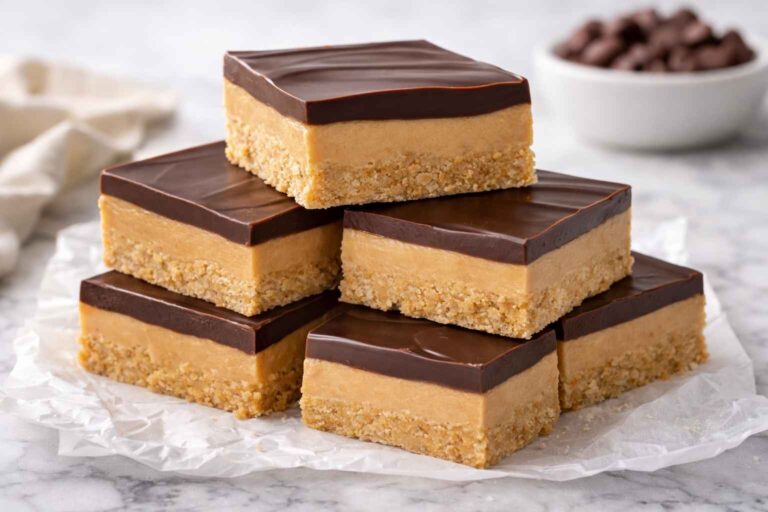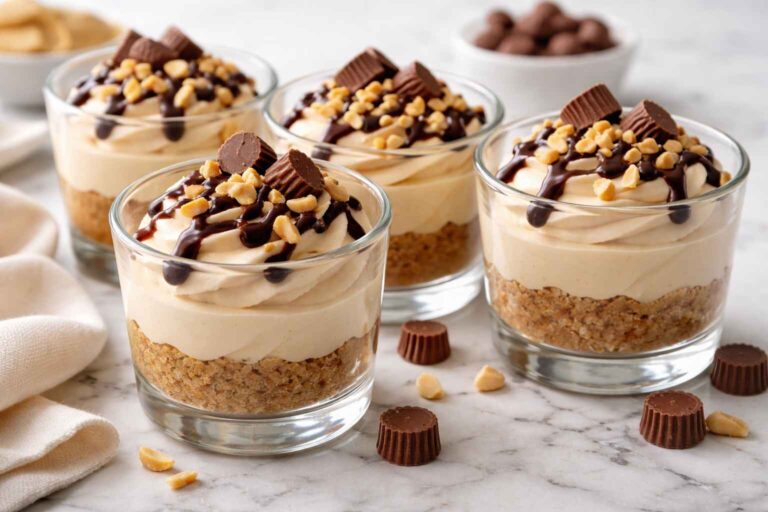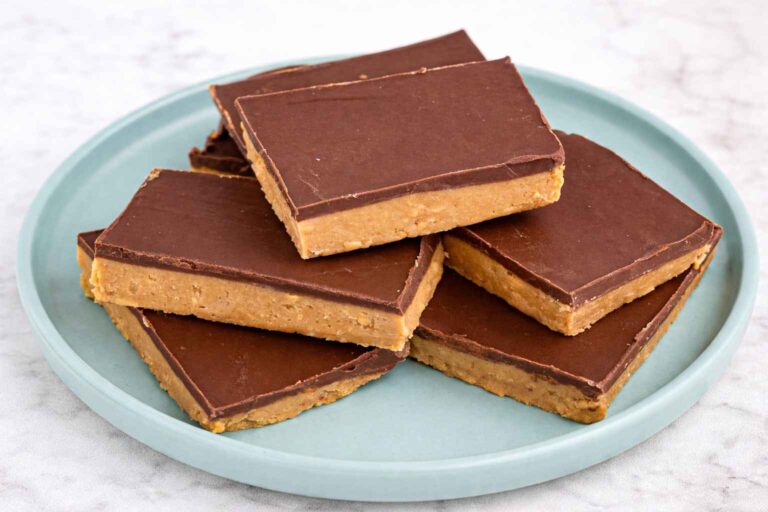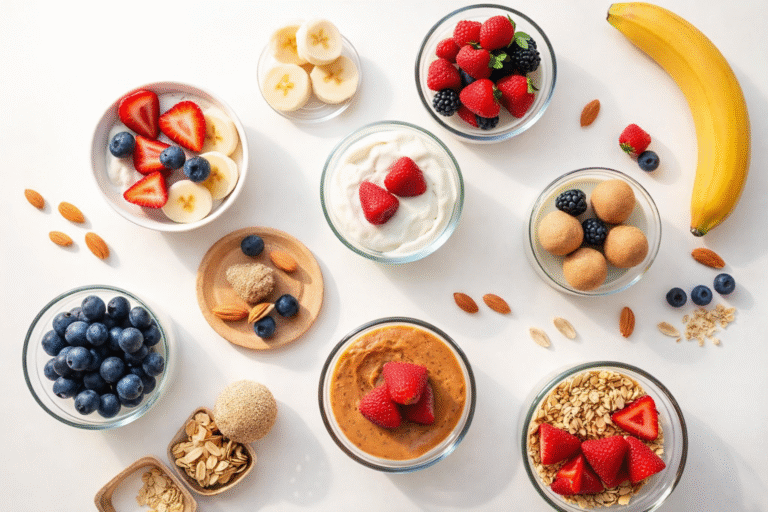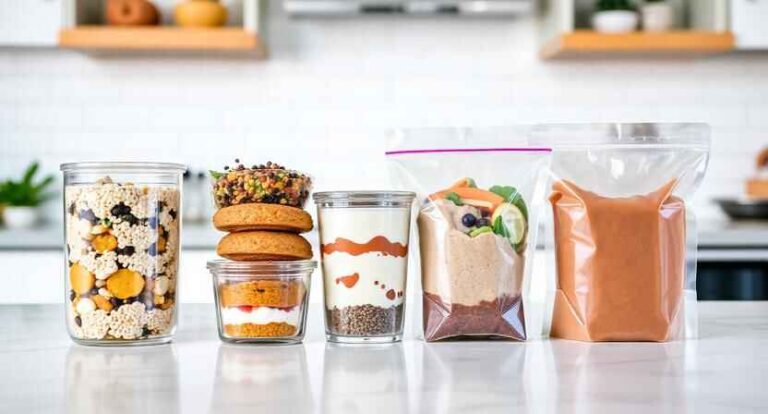Did you know your gut holds over 70% of your immune system—and that what you sip each morning could be fueling inflammation? If bloating, fatigue, or brain fog sound familiar, your gut might be crying out for help. In this post, we’re diving into the power of anti-inflammatory smoothies for gut health—what to include, what to avoid, and how to blend your way to better digestion. Ready to heal from the inside out? Let’s get into it. 🥤
Table of Contents
What Is an Anti-Inflammatory Smoothie?
Imagine your gut as a garden. If you want the plants (your good bacteria) to grow well, you need to give them water, sunlight, and good soil. That’s exactly what an anti-inflammatory smoothie does — it feeds your gut what it loves. These smoothies are packed with ingredients that calm inflammation, reduce bloating, and help your digestion run like a well-oiled machine.
Unlike sugary drinks or heavy meals, an anti-inflammatory smoothie is like a peace offering to your stomach. It’s easy to digest, full of fiber, and loaded with antioxidants. These are the kinds of nutrients your body can use right away to start the healing process.
“Anti-inflammatory smoothies are like a reset button for your digestive system. They calm the fire that poor diets and stress ignite.” — Registered Dietitian Emily Harper
Understanding Inflammation and Gut Health Connection
Think of inflammation as your body’s alarm system. When there’s an injury or a threat (like harmful bacteria), your body responds with inflammation to fix the issue. That’s great short-term. But chronic inflammation? That’s where things go sideways — especially in your gut.
When inflammation lingers in your digestive system, it messes with everything: nutrient absorption, your immune system, and even your mood. Research shows that chronic gut inflammation is linked to conditions like IBS, Crohn’s disease, and even anxiety and depression.
How Smoothies Can Reduce Inflammation Naturally
So, what’s the deal with smoothies? Well, they’re like nutritional superheroes. Packed with fruits, veggies, and anti-inflammatory herbs, smoothies deliver key nutrients directly to your gut — no need to digest heavy fibers or complex fats first. Everything is pre-blended and ready to work its magic.
Some common anti-inflammatory ingredients include turmeric, ginger, leafy greens, and berries. These are known to help reduce gut lining irritation, restore the microbiome, and soothe that fiery discomfort you might feel after a heavy meal 🍓.
Why Gut Health Matters More Than You Think
Common Gut Health Problems Linked to Inflammation
Millions of people struggle with gut issues and don’t even realize inflammation is the root cause. If you often feel bloated, get constipated, or deal with frequent stomach cramps, you’re not alone. These symptoms are often red flags of chronic inflammation.
- IBS (Irritable Bowel Syndrome)
- Leaky gut syndrome
- Gas and bloating after eating
- Skin issues like eczema and acne
- Frequent fatigue or brain fog
The gut is more than just a food processor. It’s connected to your immune system, brain, and energy levels. That’s why gut health should be a priority — not an afterthought.
Signs Your Gut Needs Anti-Inflammatory Support
Wondering if your gut is inflamed? Here are some not-so-obvious signs:
- You’re constantly tired no matter how much sleep you get.
- You crave sugar or salty snacks all the time.
- You feel “puffy” or bloated after meals.
- You have unexplained joint pain or stiffness.
- Your mood swings are more intense than usual.
If that sounds familiar, your gut may be trying to tell you something. Time to give it a smoothie-shaped hug 🫶.
Key Ingredients in Anti-Inflammatory Smoothies
Best Fruits for Fighting Gut Inflammation
Fruits aren’t just tasty — they’re inflammation-fighting warriors. Here are a few worth blending:
| Fruit | Anti-Inflammatory Benefit |
|---|---|
| Blueberries | High in antioxidants like anthocyanins |
| Pineapple | Contains bromelain, a natural digestive enzyme |
| Banana | Rich in potassium, supports gut lining |
| Mango | Boosts fiber intake, supports microbiome |

If you’re looking for variety, check out this pineapple ginger detox juice that’s great for gut support and energy too.
Gut-Healing Superfoods to Include in Smoothies
You don’t need a million ingredients to make a powerful smoothie — just a few superstars. These are some of the best:
- Chia seeds: High in omega-3s and soluble fiber
- Greek yogurt or kefir: Rich in probiotics
- Spinach: Full of iron and gentle on the gut
- Avocado: Adds healthy fats that reduce inflammation
Want more ideas? The ultimate guide to anti-inflammatory smoothies dives deeper into recipe tips.
Anti-Inflammatory Spices and Add-ins That Work
This is where the magic happens. A pinch of the right spice can turn a good smoothie into a healing powerhouse 🌿.
- Turmeric: Contains curcumin, which fights inflammation at the cellular level
- Ginger: Soothes digestion and reduces nausea
- Cinnamon: Regulates blood sugar and supports gut flora
Explore more about golden spices in this article on turmeric golden milk for inflammation.
How to Build the Perfect Gut-Healing Smoothie
Step-by-Step Formula for Nutrient-Packed Smoothies
Here’s a simple formula that works every time:
- Start with a liquid base: almond milk, kefir, coconut water
- Add a fiber source: oats, chia, or flaxseed
- Include a fruit or veggie blend: berries + greens = win!
- Boost with protein: Greek yogurt, protein powder, or nut butter
- Finish with anti-inflammatory extras: turmeric, cinnamon, ginger
This combo fuels your gut, keeps you full, and fights off inflammation naturally.

Ingredient Combinations Backed by Science
Try these combos that have been shown to reduce inflammation and aid digestion:
- Blueberry + spinach + kefir + ginger
- Pineapple + turmeric + coconut water + chia seeds
- Banana + cinnamon + oats + almond milk
Don’t forget — timing and pairing matter too. In Part 2, we’ll explore expert tips, real-life stories, and a full 7-day smoothie plan that will keep your gut smiling 😄.
Common Mistakes When Making Anti-Inflammatory Smoothies
Ingredients That Could Hurt Gut Health
Here’s the deal — not all smoothie ingredients are created equal. Just because something sounds healthy doesn’t mean it’s good for your gut. One big mistake? Using too much dairy. While yogurt and kefir are probiotic-rich, heavy dairy can cause bloating in people with lactose sensitivity.
Another culprit? Protein powders loaded with artificial sweeteners. They may look fit-friendly, but ingredients like sucralose or aspartame can irritate your gut lining and disrupt your microbiome.
Instead, opt for natural sweeteners like dates, or gut-friendly powders made from pea or hemp protein. And skip the store-bought “healthy” smoothies that list sugar as the second ingredient 🤯.
Overdoing Sugar: The Silent Inflammation Trigger
Let’s be honest — it’s easy to toss in a banana, some mango, a handful of pineapple, and boom 💥 — sugar overload. Even natural sugars, when combined in excess, can spike blood sugar and promote inflammation.
Here’s a good rule of thumb: stick to one or two fruits per smoothie. Balance them with greens, fats, and protein. This combo keeps your blood sugar stable and your gut happy.
“The most common mistake I see is people turning anti-inflammatory smoothies into dessert. Keep it balanced to actually get the health benefits.” — Dr. Megan Rhodes, Functional Nutritionist
Expert Tips to Maximize Gut-Health Benefits
When to Drink Your Smoothie for Best Results
Timing matters more than you think. Want to feel the full anti-inflammatory power? Drink your smoothie:
- First thing in the morning – to kickstart your digestion
- Post-workout – to reduce muscle inflammation and restore energy
- Mid-afternoon – as a light, gut-friendly snack
Many gut health specialists recommend having your smoothie at the same time each day to create digestive consistency. Try it for a week — you might notice less bloating and more energy before lunchtime ☀️.
Pairing Smoothies With Other Anti-Inflammatory Foods
Think of your smoothie as part of a team. Want to really fight inflammation? Pair it with these supportive foods:
- Leafy green salads with olive oil and seeds
- Bone broth as a light evening meal
- Grilled salmon or mackerel rich in omega-3s
You can also sip on drinks like lemon ginger iced green tea throughout the day to keep the inflammation-fighting going strong.
Real-Life Success Stories and Case Studies
How Daily Smoothies Helped Heal IBS Symptoms
Jasmine, a 33-year-old teacher, suffered from Irritable Bowel Syndrome (IBS) for years. She tried everything — elimination diets, fiber supplements, even fasting. Nothing worked long-term. Then she tried something simple: a daily anti-inflammatory smoothie every morning for a month.
Her go-to combo? Blueberries, spinach, kefir, turmeric, chia seeds, and ginger.
After two weeks, her bloating was almost gone. After four weeks, she was having regular digestion, better mood, and less brain fog.

“It’s like I finally gave my gut what it was asking for all along.” — Jasmine W.
A Nutritionist’s Go-To Gut-Healing Smoothie Plan
Nutritionist Emily Tran swears by smoothies as a non-negotiable in her clients’ gut health plans. She builds smoothies with:
- One fruit (like berries or banana)
- One green (spinach or kale)
- One fat (avocado or almond butter)
- One booster (turmeric, cinnamon, ginger)
She also recommends alternating smoothie colors (green one day, red/purple the next) to diversify your phytonutrients. Smart, right?
Product Recommendations and Time-Saving Hacks
Best Blenders for Smooth and Even Consistency
Let’s face it — a chunky, half-blended smoothie is a vibe killer. Here are blenders that work wonders:
| Blender | Why It’s Great |
|---|---|
| Vitamix E310 | Professional-grade power, long-lasting motor |
| Nutribullet Pro 900 | Compact, powerful, and affordable |
| BlendJet 2 | Portable and USB-chargeable — perfect for travel |
If you’re short on time, you can also use pre-packaged smoothie packs. But make sure they’re low in sugar and free from added syrups. Compare with your DIY options in this green detox juice guide.
Ready-Made Smoothie Packs vs. DIY: What’s Better?
Here’s the scoop: DIY smoothies win in freshness and control. But ready-made packs? They win in convenience. Look for:
- Organic produce blends with no added sugar
- Frozen for freshness (not pasteurized)
- Ingredient transparency — you should recognize every item
Tip: Prep your own packs in zip bags on Sunday. Toss ingredients into a blender each morning — done in 60 seconds ⏱️.
Sample 7-Day Anti-Inflammatory Smoothie Plan
Daily Smoothie Recipes for Gut Health Goals
Ready to go all in? Here’s a week-long plan with variety and flavor:
| Day | Recipe |
|---|---|
| Monday | Blueberry + spinach + kefir + chia + ginger |
| Tuesday | Pineapple + turmeric + coconut water + flaxseed |
| Wednesday | Banana + almond butter + oats + cinnamon |
| Thursday | Mango + kale + Greek yogurt + ginger |
| Friday | Raspberries + avocado + spinach + turmeric |
| Saturday | Strawberries + chia + kefir + cinnamon |
| Sunday | Apple + kale + flaxseed + ginger |
Grocery List and Meal Prep Tips Included
Here’s your weekly grocery list — all anti-inflammatory, all gut-friendly:
- Fruits: Blueberries, bananas, mango, pineapple, apples, berries
- Greens: Spinach, kale
- Boosters: Turmeric, ginger, cinnamon, chia, flaxseed
- Liquids: Kefir, coconut water, almond milk
- Extras: Avocado, oats, almond butter
Meal Prep Hack: Chop and freeze fruits into portion-sized bags. In the morning, just dump and blend! Easy, healthy, and inflammation-fighting 🙌.
Conclusion
Anti-inflammatory smoothies aren’t just a trend—they’re a powerful tool to support digestion, reduce inflammation, and boost your overall gut health. By choosing the right ingredients and avoiding common pitfalls, you can turn a daily drink into a gut-healing ritual. 🍃
Have a favorite recipe or a gut health tip that works for you? Share it in the comments! And if this helped you, don’t forget to subscribe for more gut-friendly recipes and wellness tips.
FAQs:
What is an anti-inflammatory smoothie for gut health?
An anti-inflammatory smoothie is a blended drink made with ingredients like berries, leafy greens, and turmeric that help reduce gut inflammation and support digestion.
Which fruits are best for anti-inflammatory smoothies?
Blueberries, pineapple, and bananas are great choices. They’re rich in antioxidants, enzymes, and fiber that soothe the gut and fight inflammation.
Can anti-inflammatory smoothies help with bloating?
Yes! Smoothies with ingredients like ginger, flaxseed, and spinach can ease bloating by calming your digestive system and supporting gut balance.
How often should I drink gut-healing smoothies?
1 smoothie per day is ideal for most people. Consistency is key—daily intake helps your body absorb anti-inflammatory nutrients over time.
Are there ingredients I should avoid in anti-inflammatory smoothies?
Yes, skip sugary yogurts, fruit juices, and artificial sweeteners. These can worsen inflammation and upset your gut health.
When is the best time to drink an anti-inflammatory smoothie?
Morning is best, especially on an empty stomach. It allows your body to absorb nutrients quickly and kick-starts digestion naturally.


